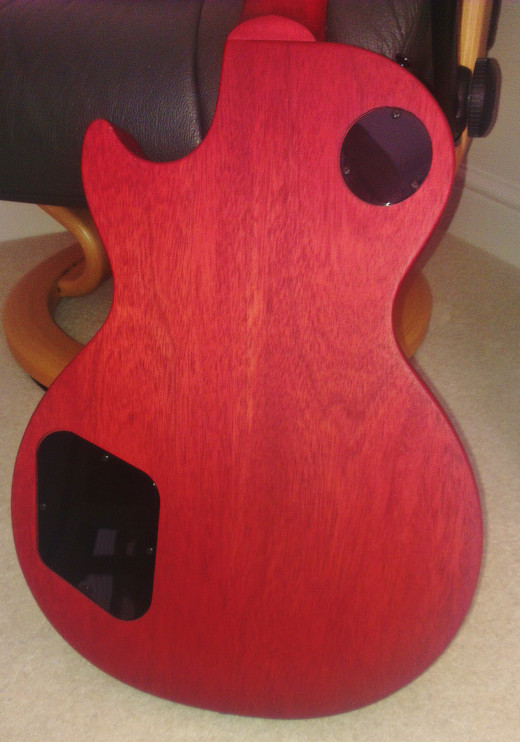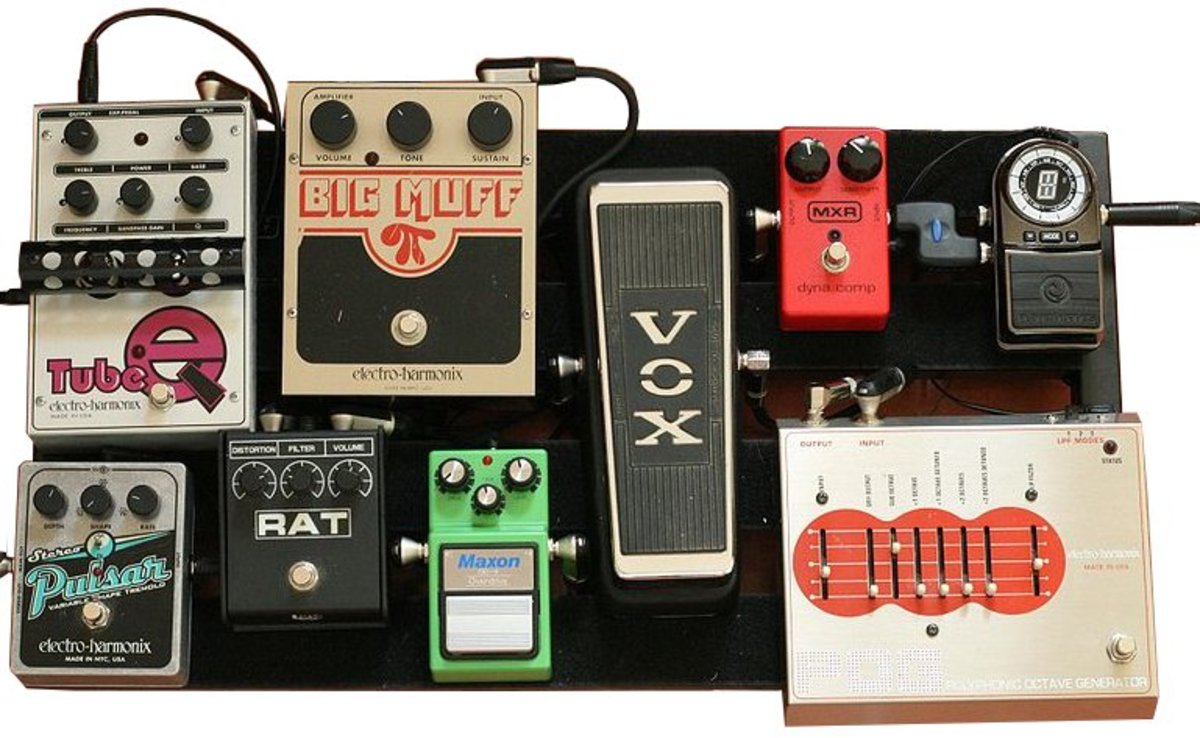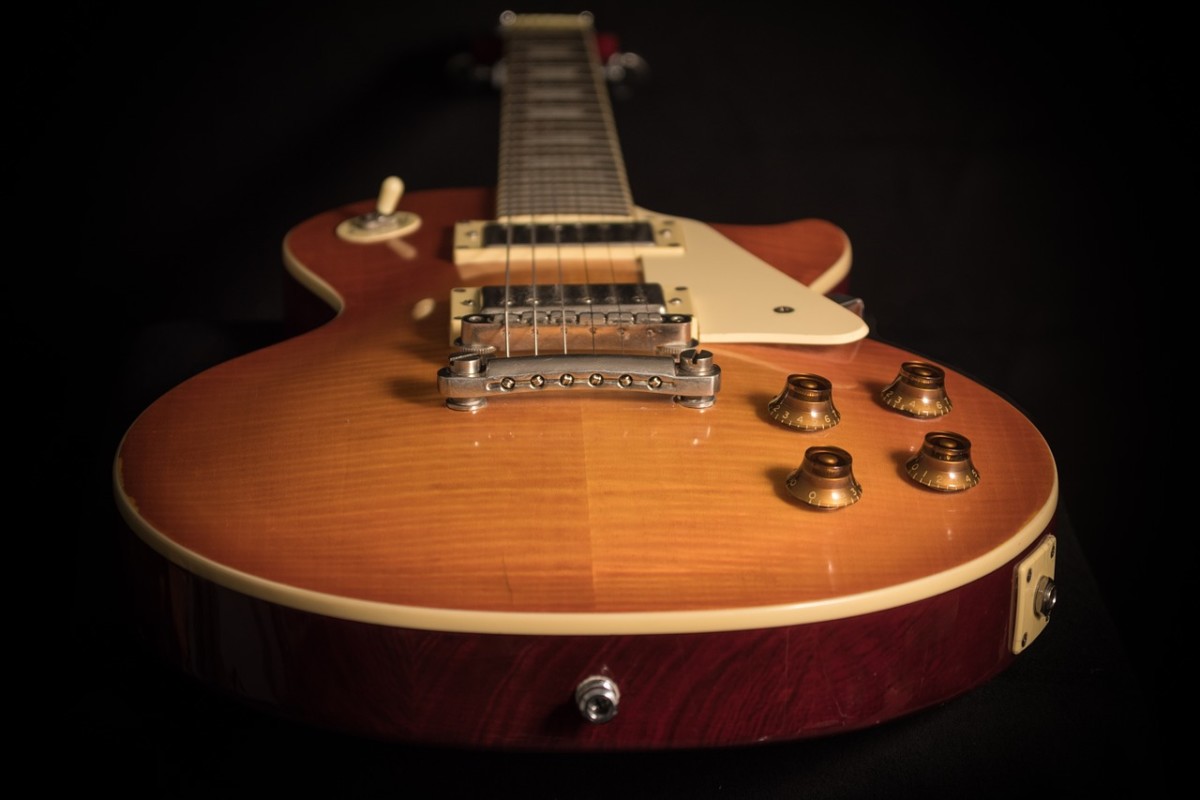How much Tonewood effects your Guitars Sound

Lets Stop Calling it Tonewood
Tonewood is a word created by marketing departments of instrument producers. There is no real definition of what tonewood actually is, is it wood that vibrates well? if that is the case what specifically makes it vibrate well? and how do companies insure that their wood is all of this special "tonewood" type and quality?
For these reasons in this article I am not going to call it tonewood, I am simply going to talk about different types of wood, some types of wood may be better than others for instruments, however these are just types of wood not this mystical "Tonewood".
Two Identical Guitars with different woods tested
Material Does effect tone
Some people have argued that the type of wood used in guitars makes no difference at all to the tone of a guitar, however I believe that it does make a large difference.
To show this I will take an extreme example, compare a solidbody guitar to a Hollowbody electric. These guitars are similar apart from in one the centre "material" is wood and the other is air. This difference in material makes a large differences in sound and how the guitar resonates. Obviously this is an extreme example, however it proves the point that a difference in material causes a difference in sound. The differences between different woods is much smaller, however there are differences in density, ect.
Every part of the guitar effects tone
In reality however you are not comparing two identical guitars, most of the time you are comparing two different guitar designs, the differences in designs include different woods, for example a Gibson Les Paul has mahogany body and neck with a maple cap, whereas a Fender American Standard Stratocaster has an Alder body and Maple neck, but also many other differences. The wood is only one part of a very complex system.
For example comparing a Strat and Les Paul. One has a bolt on neck, one has a set neck, this effects how vibrations transfer through the guitar. The stratocaster often has single coil pickups whereas the Les Paul often has humbuckers, each pickup is also different due to small differences in production. Another differences which often causes debate on its effect is the type of laquer used, Gibson uses Nitro, where as Fender often uses Poly.
All of these differences have their own effects that along with the wood leads to the unique tone of each type of guitar.
Wood is Organic, it varies log to log
Wood is not a consistent material, due to its very nature each different piece is different. The grain is different, the density is different and the structure is different. The same species of tree from different locations also have differences. Wood is also effected by climate, so the preceding years of weather will affect the material. Wood is also dried out before being used in guitars, the amount each piece of wood dries also effects its properties.
Some people buy expensive instruments from the likes of Gibson to find that it has little sustain, and the wood sounds "dead", whereas some famous guitars are made from sources that you wood not expect. Brian May's Red Special for example was made out of the top of a fireplace, no special choosing of wood there and that guitar sounds amazing.
Cost of Material compared to Guitar
Expensive guitars often quote a reason for being good as "tonewood", however what element of this improved sound is just due to cost.
What wood is cheap? Basswood has good resonant qualities and is very cheap, however it is only really used in cheap guitars (and a few boutique more expensive guitars), there is often an image that a wood has to be more expensive to have good resonant qualities, this is simply untrue. Woods that are typically associated with having good resonant qualities such as Maple and Mahogany are still relatively cheap compared to the price of the guitar.
Number of pieces of wood, the more expensive a guitar is typically the less pieces of wood glued together the body is, with cheap guitars being anything up to 5 of 6 pieces. This effect of price is something that does have an effect on tone of the guitar as the guitar body is no longer a consistent material and can be lots of filler.
Conclusion
Whether or not the wood is tonewood makes no difference to a guitar, that is because "tonewood" does not exist. All it really is is different types of wood with different qualities and properties, these properties however do effect the sound of an instrument that is made from these woods, however often these properties and their usefulness for musical instruments are not proportional to cost, resonant woods can be cheap, hence making the wood resonant well in the instrument shouldn't be a reason to bump up cost. There are also lots of other factors also affect how a guitar sounds also. To make a good guitar all of these parts need to work together, this is why expensive guitars tend to sound better.



